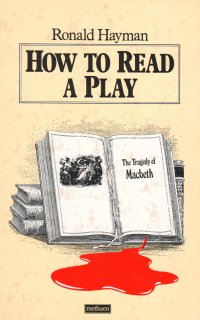 I’ve been reading some drama this year (Dinner with Friends, The Time of Your Life), so when I spotted this book on my to-read shelves, I picked it up. Because, hey, maybe I should learn how to read a play.
I’ve been reading some drama this year (Dinner with Friends, The Time of Your Life), so when I spotted this book on my to-read shelves, I picked it up. Because, hey, maybe I should learn how to read a play.
I didn’t agree with a lot of the material in the book; it takes kind of a producer- or director-first kind of perspective. Most of the book deals with the things you should infer outside the text–the layout of the stage, the stage directions, the silences and pauses, the things left unsaid. It says you have to really spend a lot of time thinking on these things to get the real experience of seeing the play live.
I don’t know if I buy that for a couple of reasons. Mostly because it throws out a lot about I’ve learned about writing plays. Back in the olden days when I was writing plays at the university (cough, cough The Courtship of Barbara Holt), we focused on minimizing the stage directions and stage layout so that theatres on a budget can stage it as they see fit. I was also told that the words in the play should present everything that the reader and viewer will need to know.
One example: He talks about having to imagine the stabbing of Claudius by Hamlet at the end of the play:
HAMLET
The point!–envenom’d too!
Then, venom, to thy work.[Stabs KING CLAUDIUS]
The author here talks about how you should imagine this as an elaborate action on the stage; however, in my Shakespeare class at the university, the professor says that this kind of takes place as an afterthought and that the main point of the play was not the revenge but Hamlet working himself up to it.
You know what? With the limited stage direction, either interpretation is possible. A good play allows for that flexibility. It’s like a musical score that different symphonies will play according to their arrangements, instruments, and conductor.
So when I read a play, I read the words which are of paramount importance in the play. I imagine some of it as needed, but I don’t build little models of the play to see it.
Going to see a play, on the other hand, is a different experience, and you enjoy it differently. But trying to reproduce the live theatre experience while reading it in a book seems like a fool’s errand.
I get the sense that the author also favors written plays with more words in italics, kind of like The Time Of Your Life.
So I didn’t get much from the book aside from disagreement, and I’m not even sure it sharpens the way I think about writing plays or reading them. Ah, well.



2 thoughts on “Book Report: How To Read a Play by Ronald Hayman (1977, 1986)”
Comments are closed.